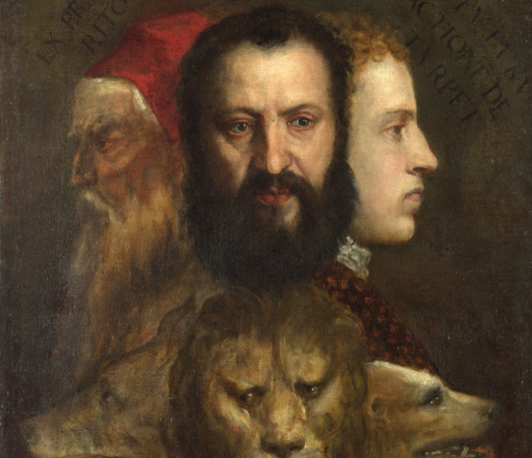Crooked Lines – Iberian casuistry in early modern Asia (16th-17th centuries)
Lecture Series 'Rites Controversy'
- Date: Nov 8, 2023
- Time: 01:00 PM - 03:00 PM (Local Time Germany)
- Speaker: Rômulo da Silva Ehalt
- Location: Online
- Host: Fupeng Li, Benedetta Albani, Manuela Bragagnolo
- Contact: roeseler@lhlt.mpg.de

In 1951, French scholar George Balandier attributed the label “colonial situation” to instances in which the interactions between a Christian and a non-Christian group were determined by the technological differences between them. As the Christian side possessed more advanced weaponry they were able to impose their will by force. Meanwhile, the response from the non-Christian side was influenced by their inability to resist this coercive power. This idea was later developed by a number of scholars, most prominently by Walter Migonolo, to frame the numerous semiotic exchanges that took place in the context of Iberian colonialism in the Americas. However, when the focus is shifted to Asia, this power imbalance needs to be reconsidered. Differences in access to technology are insufficient to explain such interactions. As the power relations changed, so did the relations established between the Portuguese and the Spanish empires and the polities and peoples in South Asia, Japan and China.
This phenomenon is evident in the normative process that shaped Indian, Chinese, and Japanese Christian communities under the patronage of the Iberian crowns in the sixteenth and seventeenth centuries. Reports and correspondence exchanged between missionaries in these areas and their superiors in Asia and Europe underscores the challenges faced by priests who attempted to adopt the rules of the Catholic Church in regions where colonial secular power was almost irrelevant. The norms of numerous practices that concerned Christian morality—such as marriages, contracts, usury, religious and civil ceremonies, and slavery, to name a few—were either adapted or discarded. Most of these decisions were made ad hoc at the end of a lengthy discussion process that often involved reading and interpreting the tenets of European moral theology and law in light of the experiences on the missionary frontlines.
Meanwhile, these discussions explored various aspects concerning the juridical personae of local Christians with respect to canon and civil law. The assumed ignorance of Asian peoples regarding Catholic dogma and divine law was used to assess the tolerability or acceptance of specific canonical and moral rules. Eventually, this led to the creation of a corpus of casuistical knowledge that delved into various social, political, and economic practices that would otherwise remain hidden in the historical record. These texts documented cases of trade, types of contracts, usury practices, dubious forms of enslavement, and matrimonial ceremonies that were subject to the scrutiny of Catholic priests seeking acceptable ways to resolve local tensions while safeguarding the souls of local Christians.
At the center of this process of knowledge creation were theologians and canonists in Jesuit, Dominican, and Franciscan colleges in Goa, Malacca, Macau, and Manila. This presentation will trace the history of Iberian casuistry in Asia, focusing on its key figures and debates. By showcasing some of the more relevant turning points in the development of a local tradition of theology and casuistry, the points of contention that formed the intellectual basis for later controversies, such as the Chinese Rites and the Malabar Rites will be highlighted.
Rômulo da Silva Ehalt is a post-doctoral researcher at the Max Planck Institute for Legal History and Legal Theory (mpilhlt).
This lecture is part of the lecture series Rites Controversy: An Entangled History of Normativity Between the East and the West, co-hosted by two Max Planck Partner Groups (Beijing, Trento) and their home department Historical Regimes of Normativity at the mpilhlt.
The session is held in English and takes place online. The organizers kindly request to register here.